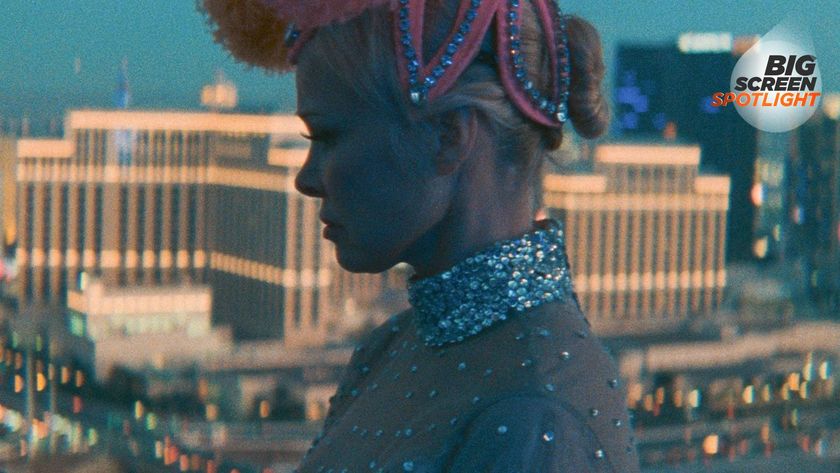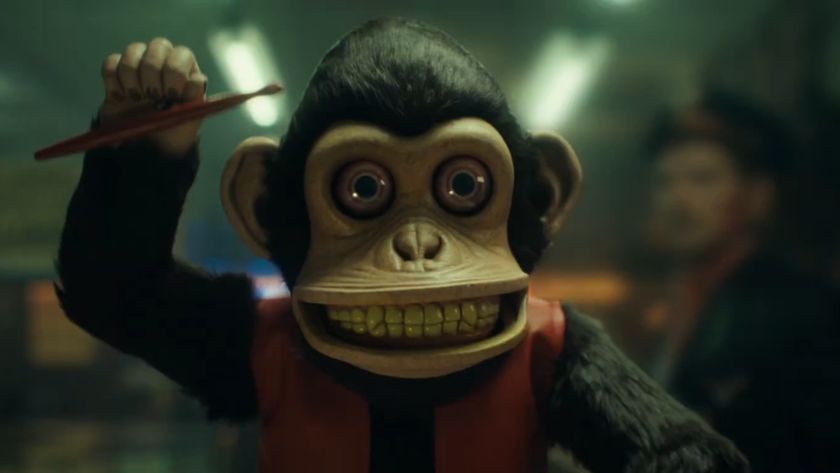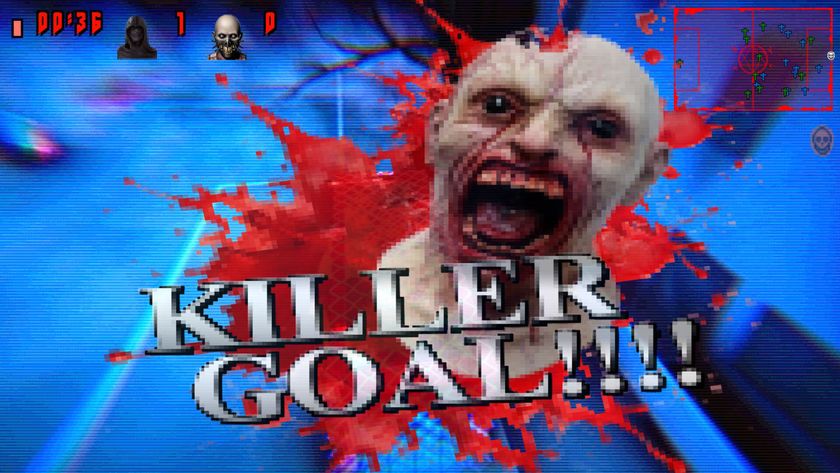Dario Argento Answers Your Questions
The horror maestro responds to your questions on genre, remakes, and collaborations
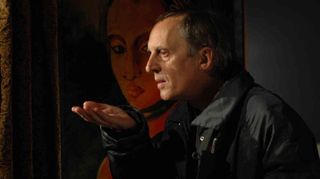
Introduction
Dario Argento, the Italian auteur behind such iconic horror favourites as Suspiria , Deep Red , and The Bird With The Crystal Plumage , was the Total Film Icon at FrightFest 2012 .
In an on-stage chat with TF ’s Deputy Editor Jamie Graham, Argento talked through his career and fielded questions from fans in the audience.
And, we also asked our Facebook and Twitter followers to submit questions too, and here are Argento’s responses…
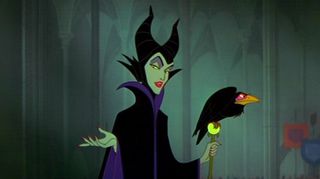
Witches
Olli Uosukainen asks: Why do you use witches as antagonists? Is it because they are the embodiment of evil in its most primal form? Or is it something to do with Disney?
"I use witches as antagonists because they are evil in its most primal form... or is it something to do with Disney. [ Laughs ] Both. To do with Disney and to do with evil. But also sometimes they’re very fun, witches."
In what way are they fun?
"Because it’s interesting, the war of the witches. Very interesting. I received a book from a French writer recently. It’s the story of the witches in Ancient Greece and Roman Empire, important witches. The stories are very surprising."
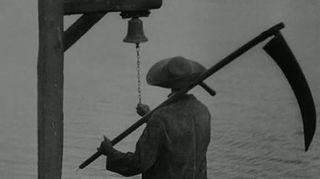
Top 5
Milos Bojovic asks: What are your Top 5 horror movies?
"It’s difficult to say. Maybe Vampyr by [ Carl Theodor ] Dreyer and maybe some films of the expressionism movement is very important. And the film Psycho too. Very important. And Night Of The Living Dead . One of the best films in the history. And some films of Val Lewton, I like a lot."
Which specific Val Lewton films?
"Many films. The whole of his career is important. Also Dracula , the Hammer film. One of the best films. Very good, very strong. And maybe Lo Spettro by Riccardo Freda, he’s an Italian director who began working in the ‘40s. Very good. Also some films of Ingmar Bergman are horror films. Very strong, very disturbing films, like The Seventh Seal .
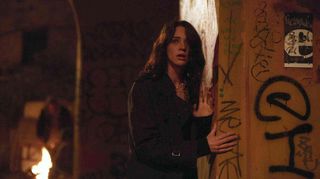
Asia Argento
Theo Sariklis asks: What’s your view on your daughter’s film career?
"I work a lot with her. She was very young at the beginning. And then she grew up. I've seen her grow up in front of me. Now she’s a woman. She changed her way with acting. But she discovered also, with me, the possibility to direct. She’s done two films I like. One I produced The Scarlet Diva . I think it's very good. She has a talent to do films as a director. Good talent."
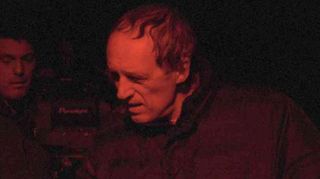
Mainstream Horror
Jack Bottomley asks: What mainstream horror films do you like?
"Not many. In the last 10 years, not many. Some films from Spain. Some films from France. Some films from Korea or Japan. Not much more than that."
And in terms of the modern horror films you don’t like?
"I don’t like American remakes. No. No. I don’t like the way America does films just to make money. This is not good. It’s not the purpose of the movie. The purpose is not just money. You open a shop for money. Film is something more than just money. Something artistic. Thinking. Philosophy. Art. Many things, not just money. Now it’s money and power in the movie business."
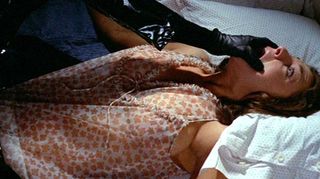
Remakes
Greig Robertson asks: If you had a chance to remake one of your own films what would you choose? Is there anything you feel you could improve?
"I don’t know, maybe The Bird With The Crystal Plumage or Deep Red [Profondo Rosso]. Because I think those two films are still very modern."
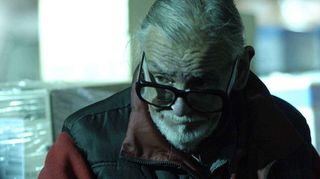
Zombies
Greig Robertson asks: Would you ever collaborate with George A. Romero again on another zombie movie?
"For the moment [ there are no plans ], but I would like to. I would like to work again with George."

Beyond Horror
David Brandon Thomas asks: Have you ever considered doing a genre other than horror? What is it about horror that captivates you?
"No, I don’t consider it because I love horror films. It’s a field so big, with so much room to move: it’s enormous. It’s like you stay in a room where the window’s closed. You open the window and the landscape you see behind the window is so enormously strange, there’s so many things: this is the horror film. You must describe it: you don’t want life to describe all the things you see outside the window."

Advice For Aspiring Filmmakers
Ryan Martin asks: What advice would you give to someone who has failed their exams and wants to get into filmmaking?
"The most important thing is to study, to go to see a thousand films. See some films twenty times. And passion. This only way to possibly work on film at some stage is to see what’s exactly what’s happening in the movies. But the most important thing is to love movies. To love this world, the craziness of the movies. The story, the invention.."
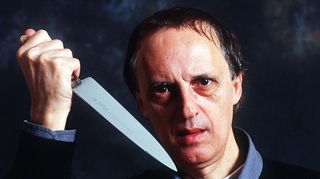
Directing Tips
Carlos Fuentes asks: What are three tips that you’ve learnt for directing horror movies?
"Films are camera, actors, cinematography, colours, light. This is the film and then it’s up to you and your talent to do something interesting to tell it, to have the something inside you to tell the story. It’s not horror films only, [it applies to] any kind of film."
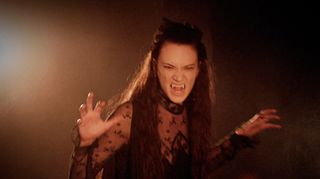
Dracula 3D
Tom Foolery asks: With Dracula 3D , what was it like working with your daughter Asia on that specific project?
"It was very good. After many years, on the first day of shooting we discovered all we needed to do to work together, to speak about the film."
What’s that relationship like? Do you joke with one another? Do you have fun on set?
"No. A film is not fun. Film is difficult, strong emotions - nobody is fun! It’s tiring to do films because you don’t sleep at night."
And outside of film do you go to see movies together?
"Together we speak about films, the scene... At night before sleeping, we speak about tomorrow’s scene. It’s good. It’s good because she helps me a lot."
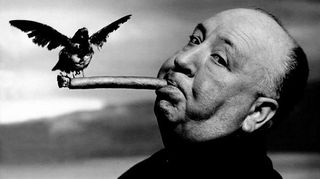
Favourite Directors
Final question, who are your five most admired directors?
"Hitchcock, of course, and Orson Welles, Fritz Lang, Ingmar Bergman, Federico Fellini and Michelangelo Antonioni."
What is it about those guys you admire?
"They’re different. I admire Antonioni for the perfection of the camera, because he was an architect: exact composition. Orson Welles for the power. Hitchcock because he’s the master of the masters, the Shakespeare of the movies."
The Total Film team are made up of the finest minds in all of film journalism. They are: Editor Jane Crowther, Deputy Editor Matt Maytum, Reviews Ed Matthew Leyland, News Editor Jordan Farley, and Online Editor Emily Murray. Expect exclusive news, reviews, features, and more from the team behind the smarter movie magazine.
Most Popular





